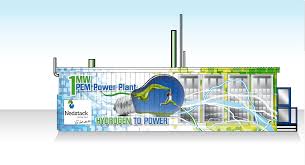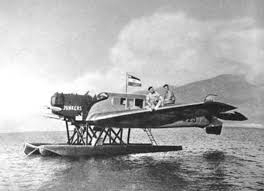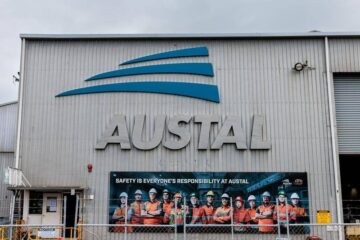In January 2023, a broad MoU was signed between Australia and the Netherland at the Port of Rotterdam.
Key items include:
- Hydrogen trade policy, standards, and certification schemes.
- Port infrastructure and supply chain development.
- Innovative hydrogen technologies, including shipping, equipment and services.
- Government policies about safety, social licence, and regulations for hydrogen.
In 2022 MoUs have also been signed between the Port of Rotterdam and the state governments of Tasmania, Queensland, Western Australia, and South Australia. These are also aimed at developing a hydrogen export supply chain from Australia to the Netherlands.
A South Australian pre-feasibility study completed at the end of 2021 estimated that the state “could supply up to 10% of Rotterdam’s hydrogen requirements in 2050”, which was estimated to reach 18 million at the time.
The port wants to import 20 million tonnes of hydrogen annually by 2050, and is aiming to begin ammonia imports from 2025.
The Netherlands seaport is also a critical part of Australia’s planned supply of Germany.
The Port of Rotterdam is strengthening its position as the largest energy import hub for Europe with exports to Germany to be facilitated through a proposed Delta Corridor.
This corridor is a hydrogen and carbon dioxide pipeline infrastructure project connecting several industrial hubs between the Netherlands and Germany.
About 13% of the total energy demand of the European Union first enters the jurisdiction through the Port of Rotterdam.
According to HySupply, the Port of Rotterdam is currently the largest hub for methanol imports and “has announced plans for five ammonia terminals, two liquid organic hydrogen carrier terminals, and one liquid hydrogen terminal”.
Australian Climate Change and Energy minister Chris Bowen said the agreement with the Netherlands and Germany reiterates Australia’s commitment to work with international partners to advancing clean energy interests.
Dutch Hydrogen Fuel Cell plant being built in Queensland
Nedstack Australia to receive $825,000 from the Advanced Manufacturing Growth Centre to develop Australia’s first hydrogen utility scale PEM fuel cell in collaboration with LAVO. This will be the world-first Hydrogen Energy Storage System.
Nedstack is a leading player in the Proton-exchange membrane fuel cells (PEM fuel cell) industry with a strategic focus and unique track record on the high power and mission critical domain. The company was founded in 1999 as a spin-out from AkzoNobel and is incorporated in Arnhem, the Netherlands.
The facility will be developed by Nedstack Australia Pty Ltd, a joint venture between LAVO Hydrogen Storage Technology Pty Ltd and Nedstack of the Netherlands, construction has started in 2022.
The $3.56M program will support research and development, the commercialisation of utility scale fuel cells for the growing domestic and international hydrogen market.
- Nedstack Australia awarded $825,000 by AMGC to prototype and develop Australia’s first utility scaled hydrogen PEM fuel cell with LAVO™
- Nedstack Australia is a joint venture between LAVO™ and Dutch PEM Fuel Cell manufacturer Nedstack.
- The prototype will be developed at the $20M Springfield facility (near Brisbane), expanding on the planned manufacturing of hydrogen fuel cells for LAVO’s 40kWh storage unit
- The $3.56M program will support research and development, the commercialisation of utility scale fuel cells for the growing domestic and international hydrogen market

Tasmania signs an MoU with the Port of Amsterdam
Inn late 2021 the Tasmanian Liberal Government signed a Memorandum of Understanding with the Port of Rotterdam to work together to investigate the feasibility of future exports of green hydrogen from Bell Bay to the Port of Rotterdam, in the Netherlands.
Tasmania has a goal to produce green hydrogen domestically in the near term and to be an exporter by 2027 and we have already lodged a funding submission for Bell Bay to be a renewable hydrogen hub as part of the Australian Government’s $464 million regional program.
Tasmania is the only location in Australia currently capable of producing 100 per cent renewable electricity all the time which can be utilised for green hydrogen production.
Cooperation with international partners like the Port of Rotterdam helps promote deployment of hydrogen technologies, enhances skills, training and employment opportunities and helps open up future export markets.
The MOU with the Port of Rotterdam follows a recent visit to Northern Tasmania by executives from Woodside Energy and Japan’s giant Marubeni Corporation who are looking at a partnership for green hydrogen production at Bell Bay.
The Port of Rotterdam is Europe’s largest port with plans to become a major green hydrogen import hub with hydrogen supply chains into North West Europe.
Allard Castelein, CEO Port of Rotterdam: “As Europe’s largest port, we’re looking all over the world for countries and companies that could export green hydrogen on an industrial scale before 2030. Tasmania could very well be one of these. Once we have jointly established the feasibility, the next step would be to get private companies aligned to try to set up trade lanes between Tasmania and Rotterdam.”
Like many European countries, the Netherlands is pursuing an ambitious decarbonisation agenda, accelerating global demand for secure and clean energy sources such as green hydrogen and the Port of Rotterdam places a high value on Tasmania’s 100 per cent green power and green hydrogen.
We welcome comments made by the Ambassador of the Kingdom of the Netherlands to Australia H.E Mrs Marion Derckx who said:
“The Memorandum of Understanding between Tasmania and the Netherlands signifies an important step in our mutual ambitions to accelerate the transition towards a non-carbon energy society.
“International cooperation is essential to drive the energy transition needed to limit global warming to a maximum of 1.5 degrees.
“As a signatory to the European Green Deal, the Netherlands celebrates this milestone and looks forward to a productive and long-term partnership in the field of green hydrogen.
“The potential of this partnership is limitless and reflects our mutual commitment to innovative and sustainable solutions,’’ Ambassador Derckx said.
Tasmania’s Renewable Hydrogen Action Plan sets out the vision to become a leader in large scale green hydrogen production to meet both domestic and export demand.
The Tasmanian Government believes the State is well placed to seize these opportunities with our 100 per cent renewable electricity, abundant water supplies and excellent port infrastructure.


